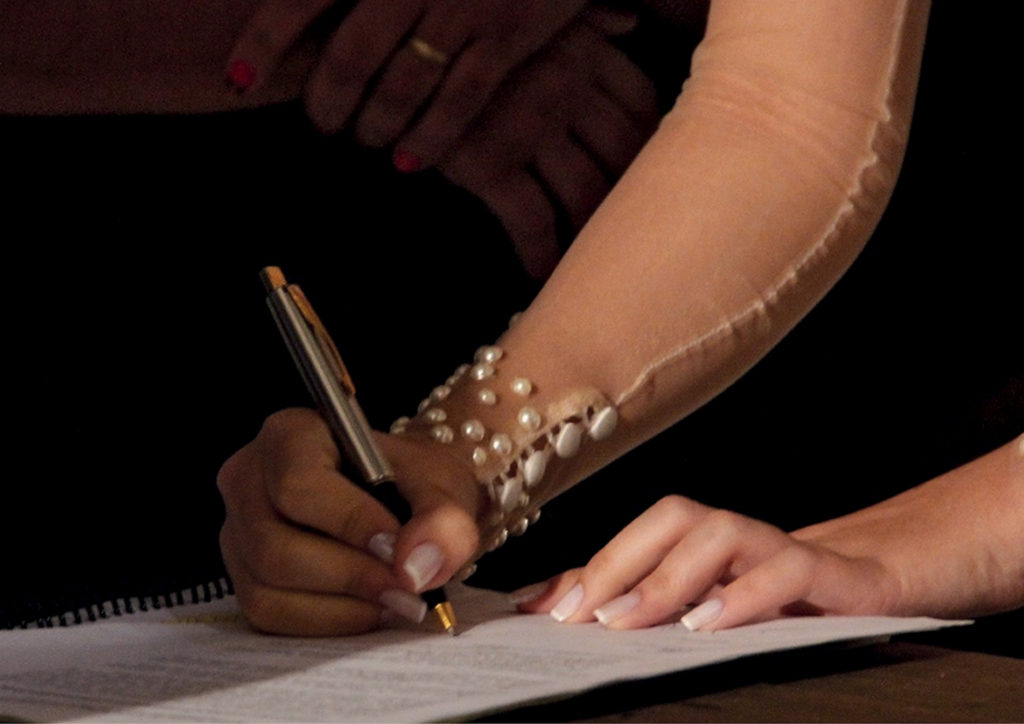Beyond all the tulle, confetti and clinking of Champagne glasses, there are some less glamorous considerations such as your marriage contract. Let our crash course help simplify all the technical jargon so you can concentrate on more fun things, like choosing the best cake!
THE TIES THAT BIND
A marriage contract is the legally binding part of saying ‘I do’. Do your own research (chat to friends or family and search online), then sit down with a lawyer to discuss your options for written agreements that suit you and your fiancé. You may feel loved up enough to speak to the same lawyer, but it’s best to take care of this part of your research as independently as possible. You are signing up for a major change in your everyday life, something that will affect you long after the wedding bells have chimed. So know your options, and have an open and honest discussion with your partner about your own needs for the agreement you’ll both sign.
LEARN THE LINGO
In community of property, both spouses have joint responsibility and entitlement to the assets and liabilities gained while married as well as those that existed before the marriage.
Out of community of property, your assets and liabilities before getting married remain your own and do not become the possession or responsibility of your spouse once you marry.
With accrual Assets gained by one spouse are shared between the couple and divided if the marriage ends (i.e. what’s yours is mine and what’s mine is yours).
Without accrual Assets gained by one spouse during the marriage belong to that person alone and are not shared or divided if the marriage ends (i.e. what’s yours is yours and what’s mine is mine).
Antenuptial contract (ANC) This contract details the agreement you have made as a couple about the division of your assets should your marriage end in divorce or death. If you decide not to go this route, you’ll be married in community ofproperty without accrual by default. In other words, an ANC offers protection of your assets before you enter into the marriage andprevents any of your spouse’s liabilities (debts) from becoming your responsibility should something happen to them.
WHEN TO SIGN
Your marriage contract can be signed before or during your marriage. However, it’s more costly and complicated to sign one once you are already hitched. So set aside time to sit down with your fiancé for an open conversation about this and get on the same page about the legalities of your union. Seek the expertise of an attorney who specialises in family law to get the ball rolling.




















